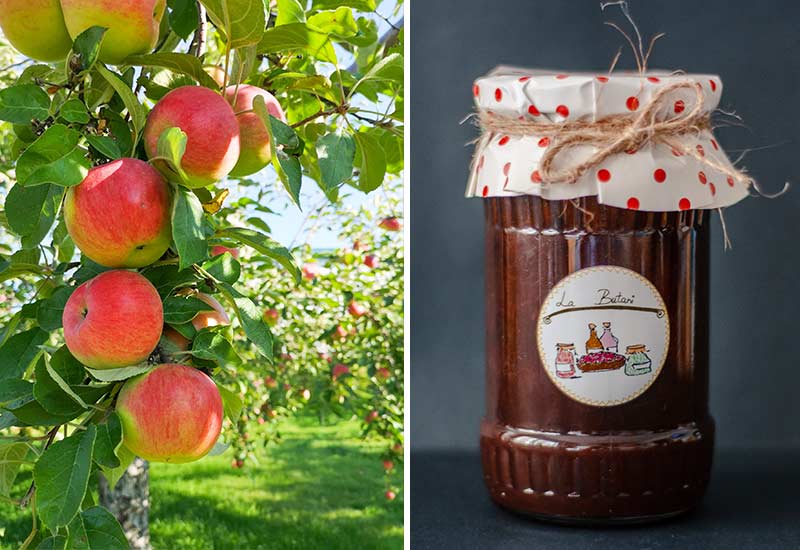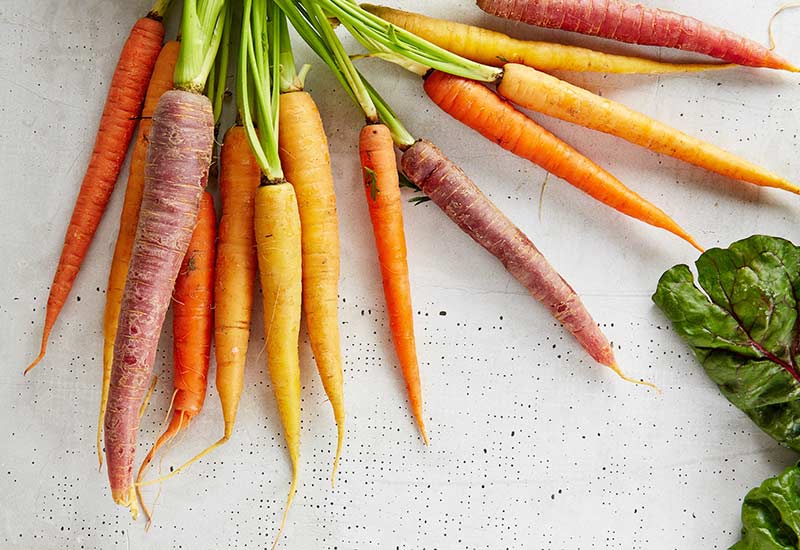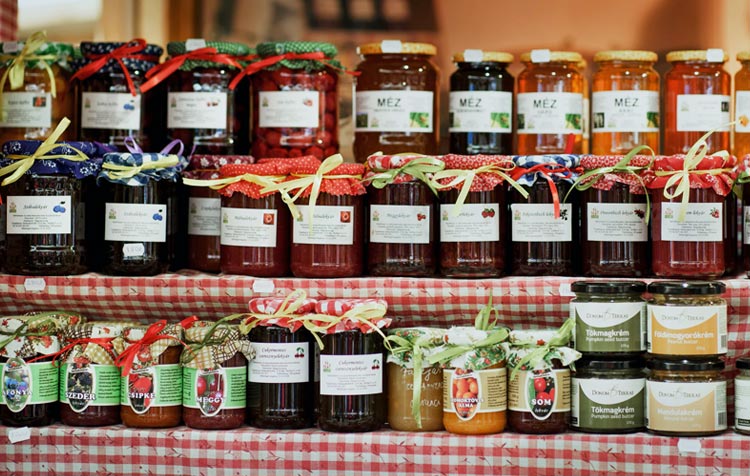You want to know more about the gelling agent pectin and whether it is vegan? Then you've come to the right place! Since I've been eating a purely plant-based diet, I've been looking very closely at the list of ingredients in organic food stores and supermarkets. Especially when it comes to gummy bears, jelling sugar, jams, sauces, desserts and ice cream, one particular additive has always caught my eye: pectin E 440. What is that actually? And is it really vegan? Questions upon questions.
In this article I would like to give you the answers and generally everything you need to know about the vegetable alternative for gelatin. Let's go!
What is pectin anyway?
In nutritional psychology, pectins (designation E 440) are considered dietary fibers belonging to the group of dietary fibers. They are Polysaccharides (so-called polysaccharides), which are mainly found in the solid stems, peels and seeds of almost all plants or fruits.
The exact pectin content of a plant is thereby depends on the respective plant species and also on the age of the tissue. Pectin is obtained by extraction - that is, boiling a plant with hot water.
What foods contain pectin?

There are countless foods and products that contain pectins. In the following I have compiled a small list of each.
Fruits with high pectin content:
- Apples
- Persimmons
- Blueberries
- Apricots
- Tomatoes
- Carrots
- Sugar beets
- Quince
- Gooseberries
- Red currants
- Blackberries
- Cranberries
- …
Good to remember: Plants without solid stems, as well as thick hulls and seeds (e.g. strawberries), usually have a low pectin content.
Food/products with pectin:
- Apple pectin
- Fruit gums
- Gelling sugar
- Fruit spreads
- Yogurts
- Sauces
- Drinks
- Dairy products
- Jellies
- Bakery products
- Desserts
- Ice cream
- …
What is pectin used for?
As the popular vegetable additive E 440 has mainly firming, jelly-forming, swelling and water-regulating properties, it is preferred in the food industry as a Stabilizer, filler, and as coating, thickening and gelling agent one.
Is pectin vegan, vegetarian, halāl and basically healthy?

In contrast to gelatine, which is mainly skin, cartilage, bones and tendons from primarily pigs and cattle from the Factory farming pectins are purely vegetable dietary fibers. As there are no animal components even after the industrial processing, the gelling agent pectin is wonderfully suitable for vegans and of course also for vegetarians.
Perhaps you are interested in whether pectins also comply with Muslim dietary regulations? This answer is also clear: Since no animals have to suffer or are even killed for the vegetable additive, it is also halāl - and therefore also Suitable for Muslims.
And what about the health aspect of the gelling agent pectin? The European Food Safety Authority (EFSA, European Food Safety Authority) sees in the consumption of the vegetable multiple sugars No health concerns. Pectin allows the blood sugar level to rise only slowly, saturates for longer and can be used in the healthy slimming help. It is even able to lower cholesterol and also brings intestinal cleansing function.
Nevertheless, it is sugar, so the corresponding sweets and jams with pectin, of course, should be treated with caution. Unlike usual gelling sugar with gelatin, the Gelation and sweetening of the food with pectins independent of each other. This allows you to decide on the amount of sugar yourself, so that creations with less sugar and calories are possible despite the gelling agent.₁.
Is pectin also a good vegetable gelatin substitute?
Pectin is vegan and definitely the vegetable, environmentally and animal-friendly alternative to gelatin. The additive can, for example, be used just as well for thickening and as a gelling agent. You can get pectin as a food additive in both liquid and powder form.
I hope that I could help you with this article about the purely vegetable additive. Do you have any questions, tips or suggestions? Then I am curious about your comment.
Be always kind to animals,

PS.: So pectin is vegan. But is also the red dye carmine veganwhich is often used in jam or even lipsticks? In the linked article you can find out now!
References:
₁ EFSA Journal; European Commission (2021): Opinion on the re-evaluation of pectin (E 440i) and amidated pectin (E 440ii) as food additives in foods for infants below 16 weeks of age and follow-up of their re-evaluation as food additives for uses in foods for all population groups, available at https://www.efsa.europa.eu/en/efsajournal/pub/6387 [26.04.2022].





